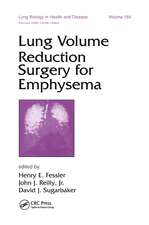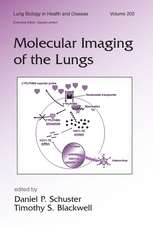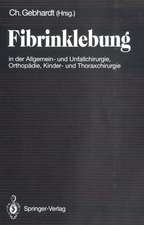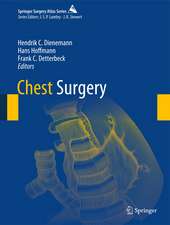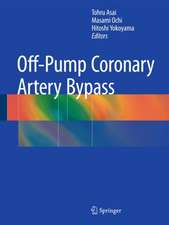Percutaneous Treatment of Cardiovascular Diseases in Women
Editat de Patrizia Presbitero, Julinda Mehilli, Anna Sonia Petronioen Limba Engleză Hardback – 30 sep 2016
| Toate formatele și edițiile | Preț | Express |
|---|---|---|
| Paperback (1) | 708.96 lei 38-45 zile | |
| Springer International Publishing – 14 iun 2018 | 708.96 lei 38-45 zile | |
| Hardback (1) | 791.09 lei 38-45 zile | |
| Springer International Publishing – 30 sep 2016 | 791.09 lei 38-45 zile |
Preț: 791.09 lei
Preț vechi: 832.72 lei
-5% Nou
Puncte Express: 1187
Preț estimativ în valută:
151.37€ • 158.05$ • 125.28£
151.37€ • 158.05$ • 125.28£
Carte tipărită la comandă
Livrare economică 31 martie-07 aprilie
Preluare comenzi: 021 569.72.76
Specificații
ISBN-13: 9783319396095
ISBN-10: 3319396099
Pagini: 251
Ilustrații: VIII, 275 p. 58 illus., 50 illus. in color.
Dimensiuni: 155 x 235 x 22 mm
Greutate: 0.68 kg
Ediția:1st ed. 2017
Editura: Springer International Publishing
Colecția Springer
Locul publicării:Cham, Switzerland
ISBN-10: 3319396099
Pagini: 251
Ilustrații: VIII, 275 p. 58 illus., 50 illus. in color.
Dimensiuni: 155 x 235 x 22 mm
Greutate: 0.68 kg
Ediția:1st ed. 2017
Editura: Springer International Publishing
Colecția Springer
Locul publicării:Cham, Switzerland
Cuprins
1. Women and invasive diagnostic procedures.- 2. Intracoronary imaging and intracoronary functional tests.- 3. Interventional treatment of stable coronary artery disease in women.- 4. Interventional treatment of Acute Coronary Syndrome (ACS): non-ST-elevation ACS (NSTE-ACS).- 5. Interventional treatment of acute coronary syndrome: ST-segment elevation myocardial infarction.- 6. Peri- and Post-procedural Antithrombotic Therapy in Women.- 7. Aortic valve valvuloplasty.- 8. Transcatheter aortic valve implantation.- 9. Mitral valvuloplasty for mitral stenosis.- 10.Treatment of mitral regurgitation.- 11. Surgical and percutaneous treatment of tricuspid valve.- 12. Left atrial appendage closure.- 13. Closure of atrial septal defect and patent foramen ovale.- 14. Ablation of atrial fibrillation in women.- 15. Biventricular pacing in women for heart failure.- 16. Thoracic and abdominal aorta percutaneous treatment.- 17. Treatment of peripheralarteriopathy in women.- 18. Gender Differences in Carotid Artery Stenting.- 19. Percutaneous treatment during pregnancy.- 20. Left ventricular assist devices.
Recenzii
“This is a general overview of basic concepts and practical interventional cardiology in the treatment of women patients. … The intended audience is practicing cardiologists and cardiology fellows. … This is a high quality book. It is quite useful because of its readability and for its illustrations. It is preferable to similar books because it is clearly written and highlights key points well.” (Daniel Garcia, Doody's Book Reviews, March, 2017)
Notă biografică
Patrizia Presbitero, consultant of Interventional Cardiology at the Humanitas Research Hospital of Rozzano –Milano, Italy. After training at the National Heart hospital , Sick Children Hospital and Brompton Hospital in London and in the Catheterization Laboratory in Nieuwegein –Utrecht, she became Responsible of the Catheterisation Laboratory of the University of Torino and then Director of Interventional Cardiology of Humanitas Research Hospital . In her clinical practice, she employs the most advanced devices made available to interventional cardiologists. Her research interests focus on congenital , valvular heart diseases and on heart disease in women and during pregnancy .On this subject she wrote a book “The heart of the women”.
Julinda Mehilli is Director of Interventional Cardiology at Klinikum der Universität, Ludwig-Maximilians University Munich, Germany. She is practicing interventionalist withan experience of more than a decade in interventional cardiology with a wide curriculum in treatment of coronary artery and structural heart disease. Alongside her interventional career, Professor Mehilli ranks among the best publishing cardiologists in her research field – optimization and risk-adapted tailoring of device design and interventional strategy in patients with coronary and aortic valve disease as well as individualization and adjustment of antithrombotic therapy according to ischemic-bleeding risk profile of the interventionally-treated patients. Furthermore, she is the co-founder of the WOMEN-EAPCI working group within the European Society of Cardiology with the mission to attain gender equality at the professional and patient level.
A. Sonia Petronio is Professor of Cardiology since 2002 at the Cardio-Thoracic Department of the University of Pisa, Italy, and Director of the Hemodynamics department of the University Hospital in Pisa. After training at the National Heart Hospital and King's College Hospital in London, the Cardiologic Department of University of Verona, the Catheterization Laboratory of San Diego, and the Catheterization Laboratory of New York, she then became Responsible of the Catheterization Laboratory of the Cardiac and Thoracic Dept. of the University of Pisa, where she currently works as interventional cardiologist. She is Co-founder of WIN (Women in Innovation, SCAI) and of the new WOMEN-EAPCI group.
Julinda Mehilli is Director of Interventional Cardiology at Klinikum der Universität, Ludwig-Maximilians University Munich, Germany. She is practicing interventionalist withan experience of more than a decade in interventional cardiology with a wide curriculum in treatment of coronary artery and structural heart disease. Alongside her interventional career, Professor Mehilli ranks among the best publishing cardiologists in her research field – optimization and risk-adapted tailoring of device design and interventional strategy in patients with coronary and aortic valve disease as well as individualization and adjustment of antithrombotic therapy according to ischemic-bleeding risk profile of the interventionally-treated patients. Furthermore, she is the co-founder of the WOMEN-EAPCI working group within the European Society of Cardiology with the mission to attain gender equality at the professional and patient level.
A. Sonia Petronio is Professor of Cardiology since 2002 at the Cardio-Thoracic Department of the University of Pisa, Italy, and Director of the Hemodynamics department of the University Hospital in Pisa. After training at the National Heart Hospital and King's College Hospital in London, the Cardiologic Department of University of Verona, the Catheterization Laboratory of San Diego, and the Catheterization Laboratory of New York, she then became Responsible of the Catheterization Laboratory of the Cardiac and Thoracic Dept. of the University of Pisa, where she currently works as interventional cardiologist. She is Co-founder of WIN (Women in Innovation, SCAI) and of the new WOMEN-EAPCI group.
Textul de pe ultima copertă
This book describes a wide range of interventional procedures currently employed in the treatment of cardiac diseases in women with the aim of enabling not only interventional cardiologists but also cardiologists and cardiac surgeons to refine their approach to female patients and thus improve outcomes. The book reflects the increasing awareness of gender differences with regard to coronary artery disease and structural valve heart disease. Examples include myocardial infarction, which carries a worse prognosis in women in part because they suffer from this disease mostly in the 7th decade of life, present more frequently with hemodynamic instability and later from symptom onset, and have fragile, small and tortuous coronary arteries that are more technically demanding in the context of primary percutaneous coronary intervention. Another example is symptomatic aortic stenosis, which carries a better prognosis in women who undergo trans-catheter aortic valve implantation partially due to a better annulus-prosthesis match, which leads to less residual paravalvular regurgitation, better left ventricular function and lower aggregation of comorbidities. Further, in women left ventricular response to aortic stenosis is typified by muscle hypertrophy with a small ventricular cavity. These differences are reflected in the clinical manifestations and their impact on diagnosis, treatment, and choice of tools and devices for use in interventional procedures. By explaining the at times subtle variances in disease and treatment techniques for female and male patients, this book will help practitioners select the most appropriate procedures and materials in a range of settings.
Caracteristici
Provides extensive guidance on interventional cardiology as applied to women Explains how gender differences influence diagnosis, treatment, and choice of tools and devices Written by a group of female interventional cardiologists who are members of the European Association of Percutaneous Cardiovascular Interventions, linked with Women in Innovation

